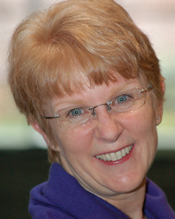Spring 2023/Evelyn Bickley If you’ve been homeschooling for more than a week—or even if you haven’t even started yet—I’m sure you have asked yourself, “Am I able to do this? What if I fail my kids? What makes me think I’m qualified to teach my children?” You may have asked yourself similar questions before you ever had children—and yet, here you are, with little people in your family. Unless you have only a newborn, you have already taught your children a myriad of things: smiling, walking, potty-training (let’s admit it: that’s a big one!), saying “please” and “thank you,” and so many other things. You’ve read to them, introduced them to animals and the outdoors, and shown them how to count. You’ve taught them to use crayons or markers (on paper, please—not the wall!) and utensils when they eat. And while you were doing those things, you were teaching (in order): literature and vocabulary, biology and natural science, math, art and fine motor skills! You have been their teacher since the very beginning. “But,” you ask, “they’re older now. How do I keep ahead of them—or at least keep up?” Don’t worry: you have more ways than you know to increase your knowledge of this profession of being a homeschool parent.
- Homeschool Conferences: First, I suggest that you strongly consider attending the NCHE Thrive! Conference. Held in May of each year in Winston-Salem, it is loaded with inspirational and how-to sessions from seasoned homeschool parents and leaders. By the time spring gets here, I am usually pretty worn out with school. Attending the conference reignites my energy, gives me new ideas for dealing with difficulties and shows me that I am not alone—that there are many other families doing this hard thing with me. If you cannot personally attend a conference, I encourage you to listen to the conference sessions. These recordings can be ordered on the NCHE website.
- Networking: although there can be some value in an online tribe, finding those real, live families near you is invaluable. You may find these parents and their kids at park days, PE activities, field trips or local clubs (sports, chess, choir, etc.). Avoid the temptation to drop off your kids at these activities so you can catch up on errands. These activities offer important times to network with other moms and dads. Pick their brains. Learn from these other parents what is working for them in terms of curriculum, discipline, or character training. Share with them what your family is doing and interested in. You might find others with similar interests who would be willing to share teaching with you. Networking in any occupation is important. Use it in your homeschool, too. (To find local support groups see: nche.com/community/regions/).
- Planning Days: I live in Charlotte. Did you know that the Char-Meck school system has nineteen teacher workdays during the year? Nineteen! These days are considered part of the teachers’ professional development. Make planning days a legitimate part of your schedule, too. Do you need days off to look at what’s coming up in the kids’ textbooks? Do you need a day to cook ahead to put meals in the freezer (ummm…have the kids help and call it home ec or independent living skills)? Do you need a mental health day? It’s part of your professional life.
- Workshops: Public school teachers are required to have continuing education certificates. Many places, such as museums, nature centers, and hospitals, offer adult continuing education. It’s legitimate to take time to attend a workshop that will advance skills needed in your profession of homeschooling.
- Webinars and Online Resources: If you can’t find a local workshop on the topic you’re looking for, or the schedule doesn’t work for you, there are many free online educational webinars on homeschooling topics such as Homeschooling High School and Getting Started at com/webinars/. Another great resource for free online webinars on nearly fifty homeschooling topics is hslda.org/community/webinars. A google search of “free [fill in the blank] webinars” yields many options—but please use discernment in choosing which best suit you and your family’s life philosophy and situation.
- Professional Reading: Whatever you are reading that makes you a more informed educator counts: blogs, books, or magazine articles like this one. Keep up with trends, not only in homeschooling but the things that are going on in public and private schools, too. Read about different educational philosophies: classical, Charlotte Mason, unit studies, unschooling, de-schooling, eclectic, etc. Think about which might work best for you and your kids.
Many homeschool families keep track in some way of how and what the students are doing: what subjects/topics are covered, how many hours are invested in each area, and what growth or progress they are making. But you, as the leader of your school, should be growing, too. Remember that your development as a parent/teacher is vitally important not only to your children but to your well-being and self-confidence as well.




